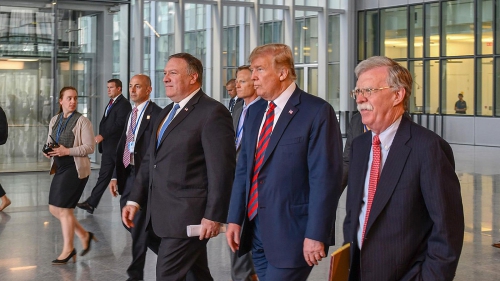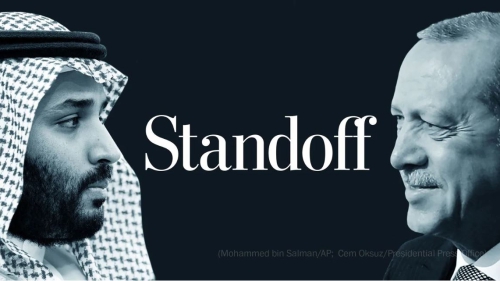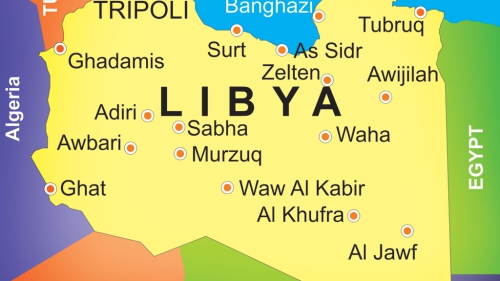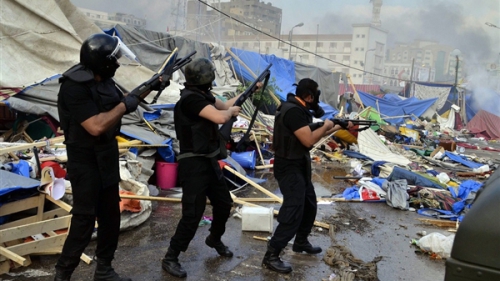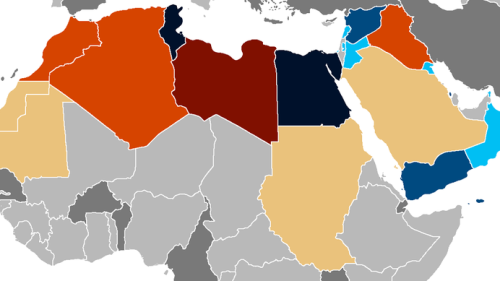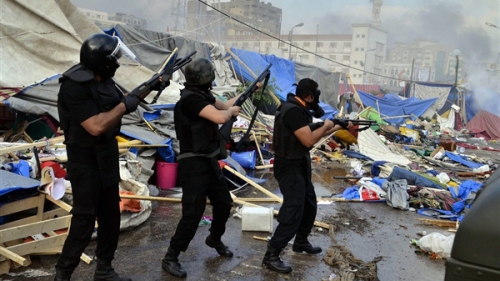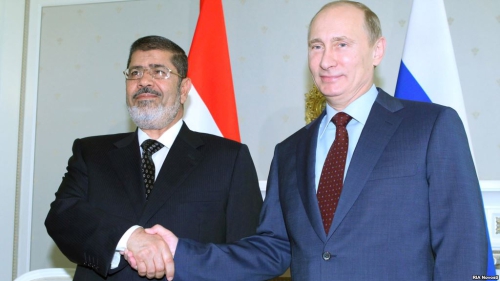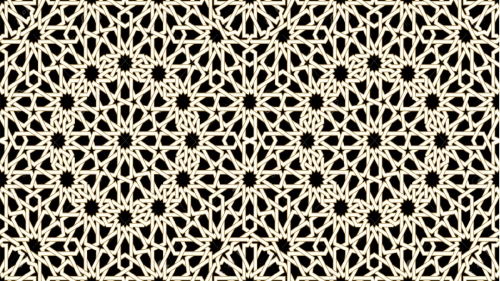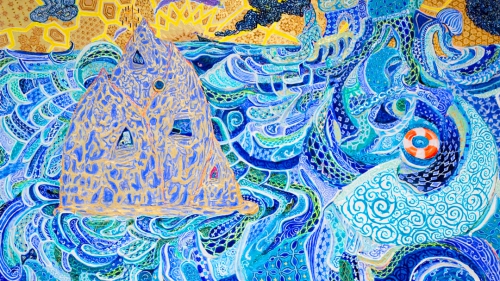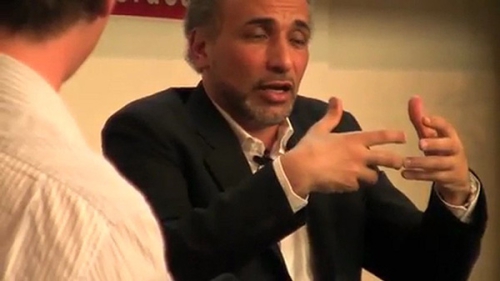Engaging the Muslim World
Book Review: Engaging the Muslim World exposes the fallacies of recent myths constituting Islam Anxiety, and offers the first real alternative course of pragmatic engagement. While faulting the Muslim world where fault is due, it also understands its legitimate grievances. It deplores short-sighted policy machinations, without indulging in America-bashing. It seeks the highest possible moral ground for sustained engagement. The book aims for nothing less than a complete reorientation of U.S. foreign policy toward the most misunderstood part of the world, and it brilliantly succeeds.
Our reliance on Middle Eastern oil is a large reason for our Islam Anxiety. This dependence is unavoidable for the foreseeable future. Cole sees solar energy as offering perhaps the best long-term alternative, but the technology has yet to be developed. "Energy independence," as peddled by politicians, is a myth. A crisis in energy shortages looms, which mostly explains our Iraq misadventure. There are other players on the world scene eager to secure access to the same limited reserves. Militarist grabs for oil, which set off waves of America Anxiety in the Muslim world, only jeopardize access.
|
|
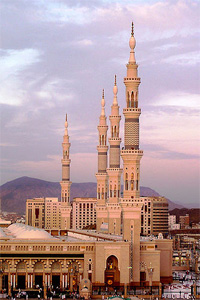 |
| Minarets at Dawn, Medina, Saudi Arabia by Shabbir Siraj via the Intelligent Travel Flickr pool |
Neoconservatives have succeeded in tarring peaceful Islamic political activism as extremism or even terrorism. This duplicitous intellectual tactic increases both Islam Anxiety and America Anxiety. Using the example of Egypt, Cole makes necessary distinctions between political Islam and violent extremism. Political Islam in Egypt, embodied in the Muslim Brotherhood, is not "Islamofascism." This neologism makes no sense, since Islamic movements, even those represented by the Egyptian thinkers Hasan al-Banna and Sayyid Qutb, do not meet the definition of fascism. The shorthand inflames paranoia, but doesn't reflect Muslim attitudes. After the 1960s, the Muslim Brotherhood gave up violence when public opinion turned against it. Similarly, "the big unnoticed story of the 1990s was the decisive defeat of the radical vigilantes in Egypt," once they overplayed their hand. Accepting the legitimacy of peaceful activist groups would let us take concrete steps toward nudging them in a more democratic direction.
While some American intellectuals conjure nonexistent parallels between European fascism and political Islam, others seek to rally Islam Anxiety through the bogeyman of Wahhabism bent on world domination. We are supposed to be terrified of Saudi Arabia, our most reliable Muslim ally, for harboring this deadly virus. Wahhabism is a puritanical return-to-the-roots movement, leaning toward passivity and quietism, not violence. Cole highlights substantial fissures in Saudi society that give hope for democratic modernization. King Abdullah has sought reconciliation with Iran. Something like his bold 2002 comprehensive peace proposal, according full recognition to Israel, may yet be the last best hope for a two-state solution. Qatar, the other Wahhabi state, is a regional peacemaker, an emerging cosmopolitan site, and home to the relatively liberal Al-Jazeera television network. Yet we bombed Al-Jazeera's Baghdad office early in the war, and came close to bombing its Doha headquarters.
|
|
Islam Anxiety is opportunistic, shape-shifting, and profoundly irrational. We used to be afraid of Iraq's Baath party for its socialist, pan-Arabist, nationalist thrust, although the Reagan administration did find it convenient to support Iraq in its 1980s war against Iran. The "insurgency" was first characterized in 2003 as representing Baathist "dead-enders," but it soon became convenient to overlook its secular nationalist element and establish "senior al-Qaeda associate Abu Musab al-Zarqawi" as its poster boy. In fact, the Baathists and religious fundamentalists have always been at odds. Iraqi support for imposition of sharia has plummeted as the war has gone on. The "success" of the surge ignores the fact that ethnic cleansing of the minority Sunnis has lowered death tolls, while space for political reconciliation has yet to be established. Refugees, in cataclysmic numbers, find it impossible to return. Engagement with Iraq would mean allaying Sunni concerns about majoritarian tyranny, and departing without leaving military bases behind.
|
|
In Pakistan, Islam Anxiety manifests in the failure to distinguish between rural and urban populations: "The conflation of Pushtuns, and their love of relative autonomy, with Talibanism frequently obscures the local politics that drive militancy." Trying to subdue the rugged, autonomous tribes on the Pakistan-Afghanistan border with military force will fail. Our support of Pervez Musharraf with $11 billion helped the military but not the people. Liberalism is alive and well in Pakistan, contrary to the fantastic rumors of an imminent Taliban takeover. Urban publics again and again stand up for constitutionalism. After a brief ascendancy in the Northwest Frontier Province, in reaction to the invasion of Afghanistan, the puritanical Islamic parties were wiped out in the most recent elections, amidst the broad victory of Asif Ali Zardari's secular, left-leaning party. Support of civilian politics, development aid, and a negotiated settlement with tribesmen would constitute engagement with this region.
Islam Anxiety reaches its peak with Iran. A mostly powerless figurehead, President Mahmoud Ahmedinejad, has been allowed to stand in for all of Iran. The commander in chief is Supreme Jurisprudent Ali Khamenei, who has declared himself firmly against nuclear weapons. Iran's America Anxiety is real. We subverted parliamentary democracy in Iran throughout the twentieth century. The 1953 CIA coup deposed popular nationalist prime minister Mohammad Mosaddegh and installed the megalomaniacal Reza Shah Pahlevi. The most recent National Intelligence Estimates assess Iran as having given up its nuclear weapons ambitions. No evidence of nonconventional weapons development exists either. Iran has not started a war against its neighbors in "at least 150 years." Yet Islam Anxiety allows us to treat Iran as the source of apocalyptic tendencies, determined to wipe out entire countries. If anything, it has been our recent misguided wars that have strengthened regional Iranian power.
Cole's book, by focusing on actual public opinion as it has evolved over the years (rather than resorting to the mythical "Arab street") and the facts of political history, shows a way out of both Islam Anxiety and America Anxiety. Solving the Israel-Palestine problem alone would defuse "ninety percent" of America Anxiety. The Obama administration, as it seeks to correct a decade of self-fulfilling phobias, will find no better guide than this nuanced, clear-headed, visionary book.
Source: Huffington Post
Anis Shivani is a fiction writer, poet, and critic in Houston, Texas.
His short fiction collection, Anatolia and Other Stories, including a Pushcart Special Mention story, will be published in September 2009 by Black Lawrence Press. The collection deals with the dilemmas of multiculturalism in diverse locales, including Ottoman Turkey, contemporary Dubai and Tehran, and the Manzanar internment camp.
Anis is currently finishing up a novel, Intrusion, about an American anthropologist conducting fieldwork in a Karachi squatter settlement. He is also writing a book of criticism called American Fiction in Decline: Publishing in an Age of Anxiety.
Related Suggestions
Like the almost daily bombings in Iraq, Afghanistan and Pakistan. Can't those wacky neo-cons get it through their heads that bombing a market is just a bit of political activism?







